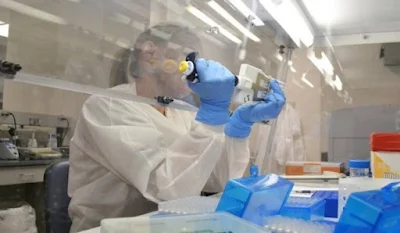European molecular biologists have developed a new method to transplant liver stem cells that enhances their adhesion to damaged liver tissue and accelerates regeneration, potentially offering a non-surgical alternative to liver transplants.
According to a statement from the University of Birmingham, this innovation could become a vital solution for treating severe liver fibrosis, where finding suitable donors remains a major challenge.
*"Liver transplantation remains the only viable treatment for many acute liver diseases,"* said Dr. Maria Arno, Associate Professor at the university. *"However, due to donor scarcity, our technique offers a promising alternative by improving stem cells’ regenerative capabilities."*
The researchers based their findings on experiments with HPC cells—a subtype of stem cells capable of differentiating into various liver tissues. Previous attempts to use these cells for liver repair had limited success due to poor survival and integration rates within the organ.
To overcome this, the team developed a method to "coat" the stem cells with sticky molecules that selectively bind to damaged liver tissues. They identified a group of carbohydrates that interact with both the stem cells and liver cells through a specialized molecular "glue."
This adhesive does not impair the cells' essential functions. On the contrary, it ensures more even distribution across the injured areas and strengthens their adhesion to the liver surface. The method was tested successfully on lab-grown miniature liver models.
*"Our technique does not require any genetic modification of the cells, making it easier to adopt in clinical settings,"* Arno added. *"We also believe this platform can be adapted for other types of stem cells in various treatments. However, we still need to explore its effects on immune response and cell behavior before moving to clinical application."*
---
### 🔖 (Tags):
```
#StemCells #LiverDisease #LiverRegeneration #MedicalBreakthrough #NonSurgicalTreatment #LiverTransplantAlternative #Biotechnology #BiomedicalResearch #HPCcells #TissueEngineering #UniversityOfBirmingham #RegenerativeMedicine #HealthInnovation #MolecularBiology #LiverFibrosis #LiverStemCells
```

